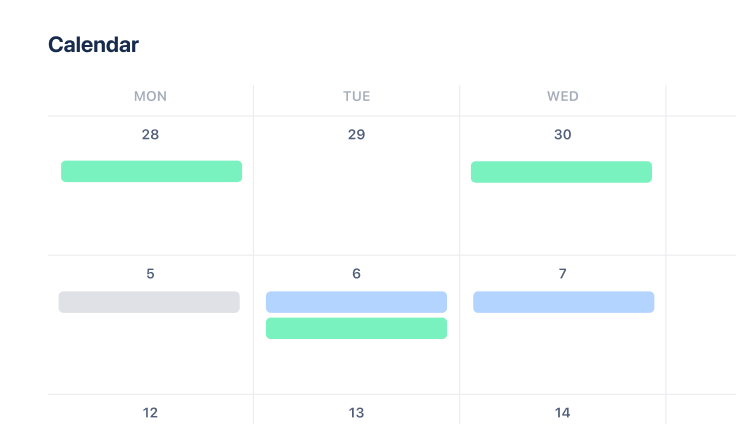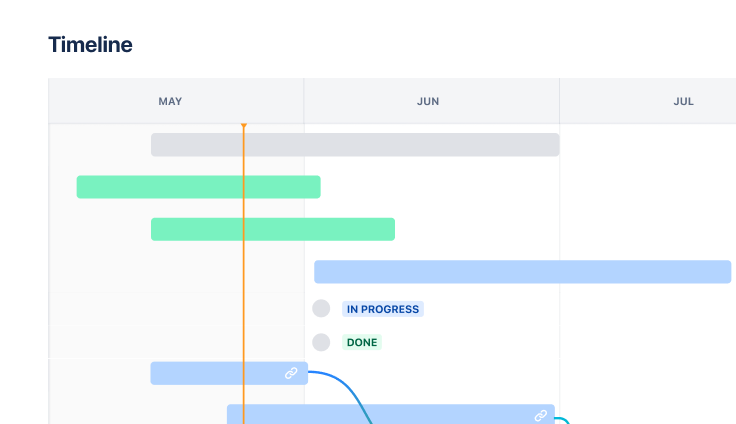
Event timeline template
Visualize your event from planning to execution with our comprehensive event timeline template that keeps teams aligned and deadlines on track.
best for
Project management
Marketing
key features
Task planning
Prioritization
Pipeline management
What is an event timeline template?
An event timeline template is a structured framework that organizes all the tasks, milestones, and deadlines needed to plan and execute an event successfully.
Visual schedule
An event timeline template turns your complex event planning process into a clear visual schedule that everyone can understand at a glance. By representing your event timeline graphically, it’s easier for stakeholders to see the big picture – including key milestones, task dependencies, and potential bottlenecks.
Visualizing tasks significantly improves communication among team members and helps prevent misunderstandings that could derail your event planning.
Planning tool
For event managers and their teams, an event timeline template is an essential planning tool that brings method to the madness of coordinating multiple moving parts. The event management timeline template allows you to break your event into manageable phases, ensuring nothing gets missed.
Detailed project management and planning with timelines are crucial for successful events because they force you to think through every step of the process.
What does the event timeline template include?
Timeline
The timeline view is the backbone of your event planning process, giving you a central hub for tracking progress across all aspects of your event. With a clear project timeline, your team can easily visualize approaching deadlines and ensure tasks are completed correctly.
The chronological view is beneficial for complex events where timing is critical and where delays in one area can affect the entire schedule.

Calendar
The Calendar view in your event planning timeline template gives you a familiar interface for tracking important dates and milestones. This view helps you pinpoint scheduling conflicts early and ensures you allocate appropriate preparation time before key deadlines.
With calendar integration, your team can sync event planning activities with their personal schedules, making time management more efficient while reducing the risk of missed deadlines.

Dependency mapping
Dependency mapping is crucial when working with complex event schedules where many tasks rely on the completion of others. The event timeline template lets you identify and visualize these dependencies, preventing situations where your team is stuck waiting for prerequisite tasks to finish.
Mapping dependencies early in your planning process helps you optimize your workflow, identify potential bottlenecks, and create a smoother execution path for your entire event.

Integrations
Your event timeline template doesn’t exist in isolation — it works seamlessly with the tools your team already uses. The template integrates with other Jira tools for issue tracking, Confluence for detailed documentation, Google Calendar for scheduling, and communication tools like Slack for real-time updates.
These integrations reduce duplicate work and ensure information flows smoothly between systems. With Jira timelines, you can connect your event planning directly to your broader organization’s work management system.

